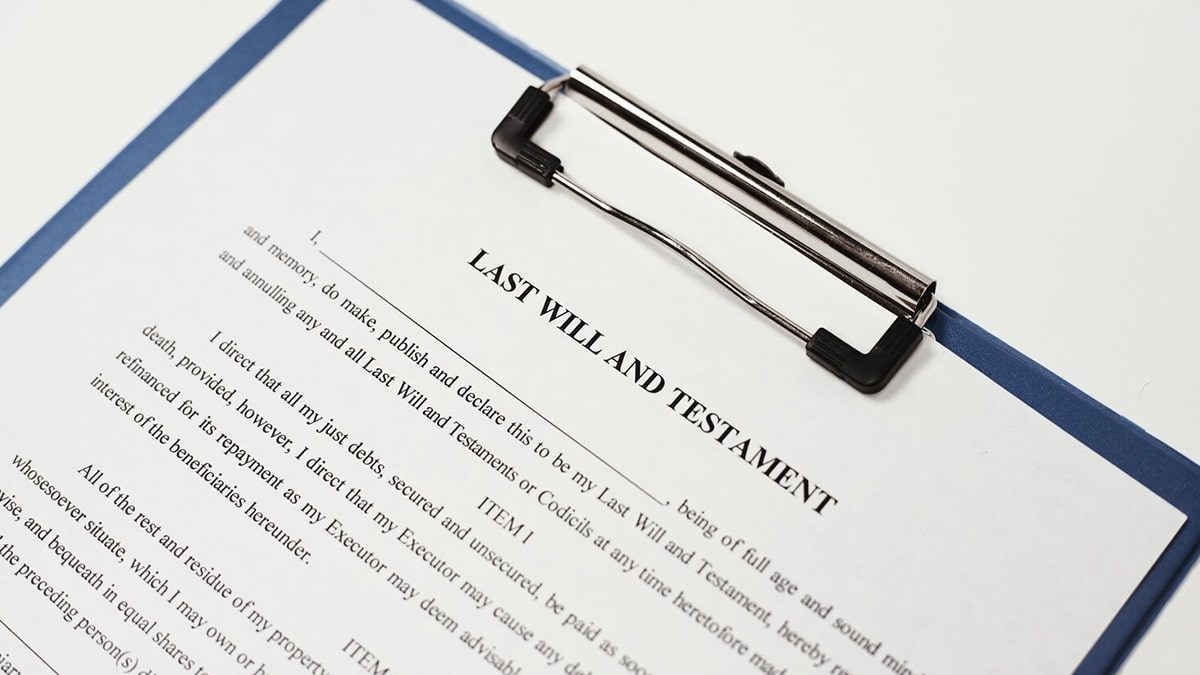In this guide
With a fourfold increase in the total amount of inheritances passed onto the next generation predicted to occur in Australia between 2020 and 2050, it makes sense to give some thought to how you would like your personal and business assets distributed after your death.
This huge transfer of wealth between generations makes it more important than ever to devote time to establishing a well thought-out estate plan. The alternative could be your beneficiaries paying more tax than necessary and your assets not ending up with the people you want.
Obviously, your Will plays an important role in transferring wealth but an often-overlooked tool is a testamentary trust.
This type of trust is established as part of the Will-making process and it can offer lots of useful options to protect your assets. It can also provide flexibility in how and when your assets – and the income generated from them – are distributed to your chosen beneficiaries.
Your Will: Standard vs testamentary trust Will (TTW)
A standard Will is the very minimum everyone should have in place prior to their death. A standard Will prevents your family and friends being left with the emotional stress and potential hardship of you dying intestate (with no valid Will in place).
If you die intestate, the Supreme Court in your state appoints a suitable administrator to wind up your affairs. This usually involves arranging your funeral, collecting your assets and distributing them to your family after paying tax and any debts you leave behind.
In its simplest form, a standard Will outlines the person or persons you want as executors for your estate, who your chosen beneficiaries are, and your instructions for the distribution of your estate.
Standard Wills do not offer any protection for your assets from former spouses, creditors, business associates or disgruntled beneficiaries, or provide any opportunities to minimise the potential tax payable on your assets.
A testamentary trust Will (TTW) on the other hand, is a type of Will that establishes a trust (or trusts) to hold your assets after you die.
How does a testamentary trust Will work?
In simple terms, a testamentary trust Will (TTW) is a Will and discretionary trust deed combined in a single document. The testamentary trust operates on terms specified in your Will and it provides a level of control over what happens to your assets and how they are distributed.
A TTW specifies which assets from your estate are to be transferred into the testamentary trust (or trusts) created by your Will.
This trust can be used to hold and protect assets such as shares, property, cash, bonds and valuables such as paintings, furniture or jewellery. The assets held in the trust are called trust capital and this capital can produce income (such as dividends or interest) and create capital gains as the assets grow in value.
Testamentary trusts can also be used to create a life-interest benefit for a beneficiary. In this situation the person benefits from an asset for the remainder of their life, but does not actually inherit it. Examples of a life-interest could include the right to live in a property, earn interest on invested money, or receive rental income from a property.
After the initial beneficiary’s death, the asset passes on to other family members, charities or other beneficiaries on whatever terms are specified in your Will.
Who is the trustee?
When you include an instruction in your Will to create a testamentary trust, you name a trustee who is responsible for distributing the trust assets to your beneficiaries in accordance with the instructions in your Will. You can give your trustee the power to decide when and how to use and distribute your assets to meet the needs and best interests of your beneficiaries.
The trustee you select for your testamentary trust can be a family member or friend aged over 18 who is an Australian resident, or you can choose a trustee company or legal or accounting organisation to take on the responsibility.
There are two main types of testamentary trusts:
- Discretionary testamentary trusts – These give a beneficiary the option to take part or all of their inheritance through a testamentary trust. The principal beneficiary can remove and appoint the trustee. They also have the power to appoint themselves to manage their inheritance inside the trust.
- Protective testamentary trusts – These require a beneficiary to take their inheritance through the trust and do not provide the option to appoint or remove the trustee. This can be useful if a beneficiary does not have appropriate skills to manage their inheritance (see below).
What beneficiaries suit a testamentary trust?
Testamentary trusts can suit a number of different family and beneficiary situations. If some or all of your beneficiaries fall into the following categories, a testamentary trust may be worth considering:
- Bankrupts: Many families include someone who has been forced to declare bankruptcy (such as a spouse who guarantees their partner’s business venture, or someone with a failed business). With a testamentary trust, the bankrupt’s inheritance can be protected from creditors.
- Divorcees: Relationship breakups are commonplace and inheritances are usually subject to a Family Court order. If a testamentary trust is in place, the outcome may be more favourable to a beneficiary, or leave fewer assets subject to a Family Court decision.
- Remarriage: Children living with a divorced partner can be sure to receive their inheritance if they inherit through a testamentary trust.
- Spendthrifts or beneficiaries with drug or gambling problems: Beneficiaries who are unlikely to responsibly manage their inheritance can still benefit if their inheritance is provided through a testamentary trust.
- People with disabilities: Families often wish to ensure the financial future of a child with special needs by establishing a testamentary trust and appointing an appropriate trustee to take care of their financial affairs.
- High-risk professions: Beneficiaries in a profession where negligence claims are a possibility can be protected by receiving their inheritance via a testamentary trust
Pros and cons of a testamentary trust
Benefits
Asset protection
- Provides protection for assets in the event of marriage or relationship breakdowns.
- Protects children and vulnerable beneficiaries.
- Protects beneficiaries in ‘at risk’ professions.
- Protects against creditor and bankruptcy claims.
Distribution opportunities
- Trustees have discretion to control the distribution of income and capital to multiple beneficiaries. This allows the trustee to take into account a beneficiary’s tax rate at the time and make distributions in a tax-effective manner.
Tax benefits
- Income, capital gains and franked dividends can be distributed to beneficiaries in a tax-efficient way.
- Tax and transfer duty are generally not payable when assets are transferred into the testamentary trust.
- Trust is not required to pay tax on income distributed to beneficiaries.
- Creates opportunities for income splitting by adult children and lower income earners.
- Reduced tax rates for children under age 18 compared to outside the trust. Income from a testamentary trust is taxed at adult – rather than minor – rates, giving a child beneficiary the normal adult tax-free threshold of $18,200, rather than the $416 threshold normally applying to minor income.
Investment benefits
- Provides flexibility for trustee to manage and invest trust capital.
- Allows trustee to invest according to changing needs of beneficiaries.
Drawbacks
Complexity
- Testamentary trusts can be complex and both the trustee and beneficiaries need to understand the structure, operating rules and tax and social security implications.
Tax issues
- Potential loss of CGT exemption on your main residence if held in testamentary trust.
- In some states, CGT may apply on assets acquired by the testamentary trust on your death.
- If capital assets are sold at a loss, capital losses cannot be distributed to beneficiaries and must be carried forward to offset future capital gains in the trust.
- Trust is required to pay tax on any undistributed income.
- Franking credits from dividend income must be distributed in the same proportions as dividends.
Cost
- Ongoing administrative, accountancy and tax preparation fees are payable.
- Fees will reduce assets held in the trust.
Flexibility and succession
- Disputes can occur and a resolution mechanism needs to be established.
- If family members share the trustee role, there is the potential for disagreements over distributions.
- Provisions are needed to cover asset sales if one or more primary beneficiaries dies.
- Succession of the trustee role can cause disputes and should be covered in the Will.


Leave a Reply
You must be logged in to post a comment.